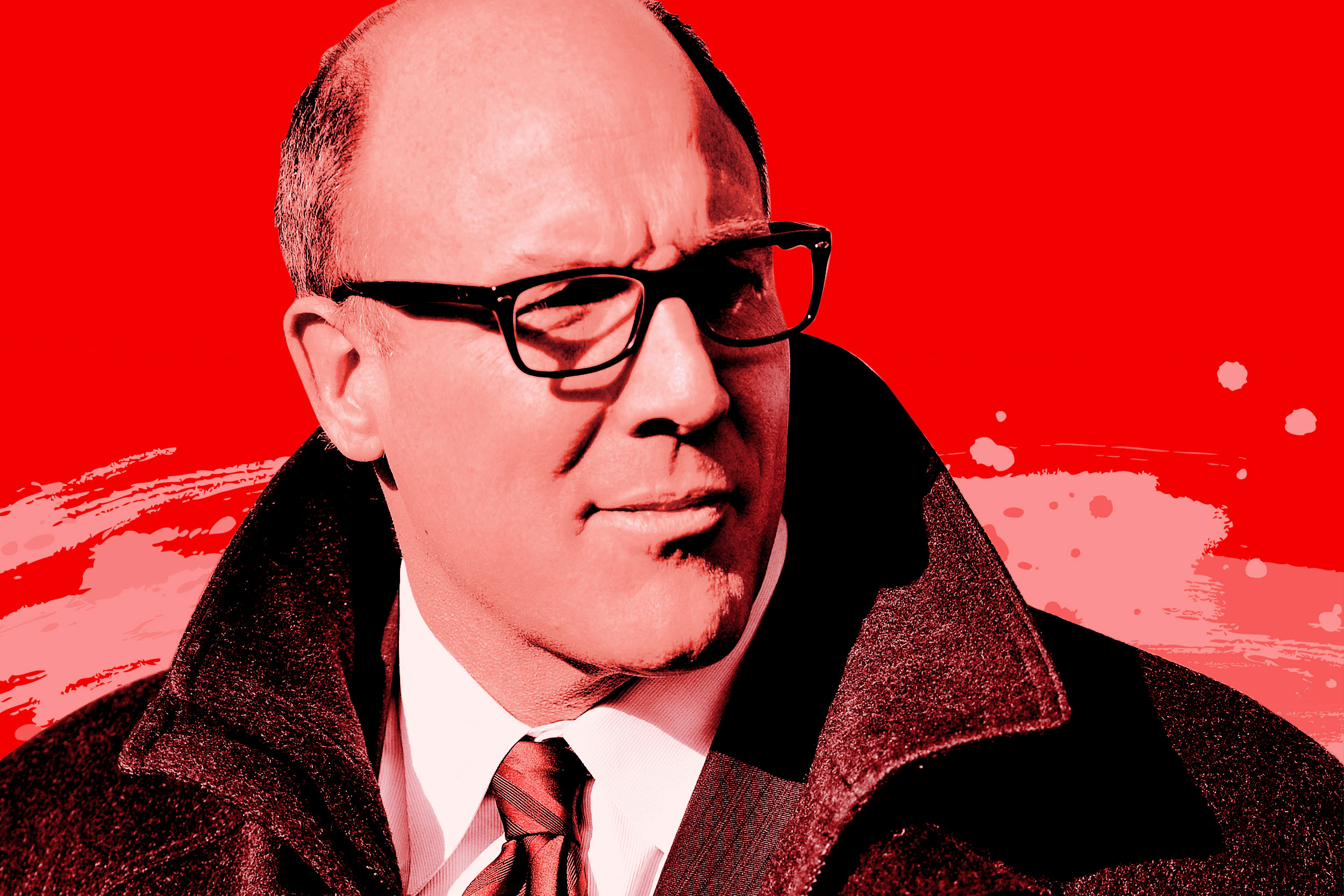
Scott Pioli had been married to Bill Parcells’s daughter, Dallas, for less than seven months when he sought permission from his father-in-law, who was also his boss, to go ride with the enemy. It was 2000, and thanks to some beef with coach-turned-GM Parcells, Bill Belichick had just jumped ship from the New York Jets, where he’d been the head coach for one day, to the New England Patriots, where he would become the man for eternity. Belichick offered Pioli, who’d served as the Jets director of pro personnel, a plum player-personnel job in New England. Parcells allowed it, and Pioli not only won three Super Bowls with the Patriots — he became one of the sport’s most sought-after minds.
In Sporting News polls voted on by league executives, Pioli won back-to-back NFL Executive of the Year honors for the 2003 and 2004 seasons. By the end of the aughts, he was a popular fixture on various “best of the decade” lists. (The rationale for his selection as ESPN’s “Personnel Man of the Decade” was: “Everyone you talk to across the league mentions Scott Pioli first.”) It was the culmination of a lifetime of football geekdom: In high school, in Washingtonville, New York, Pioli would hang a bedsheet on his wall and project opponent game film onto it. As a student at Central Connecticut State, he frequently drove to Giants practice, where he was introduced to Belichick, with whom he hit it off. And after stints with the Browns, Ravens, and Jets, he went to New England, where he was instrumental in drafting and advocating for Tom Brady and in finding unsung players at good values who could assimilate into The Patriot Way.
This weekend, he’ll again be in the building as the Patriots play for a Super Bowl — but this time, he’ll be fighting to thwart Belichick and Brady, not assist them. As Pioli, now the Atlanta Falcons assistant general manager, told the New York Daily News this week, “There is no percentage of me that wants the Patriots to win. That’s zero percent.”
Both Pioli and Falcons general manager Thomas Dimitroff are former New England staffers; Dimitroff was the Patriots director of college scouting from 2003 to 2007. They both left to take GM jobs: Dimitroff with Atlanta in 2008, Pioli with the Kansas City Chiefs in 2009. But while Dimitroff has remained with the Falcons since then, Pioli’s once-celebrated career only recently got back on track after a derailment in Kansas City, where he was fired after four turbulent seasons. Now he’s back on the staff of a Super Bowl contender, serving as the assistant to a man who was once his employee. For Pioli, though, remaining mostly behind the scenes might have been the best way to move his career forward again.

Pioli’s whole life revolved around football. So he wasn’t prepared for so many off-the-field considerations to enter his orbit once he took on the Chiefs GM role. “Less time is spent doing the job you fell in love with,” he wrote in Sports Illustrated’s MMQB in 2013, shortly after Kansas City had sacked him. Pioli had been obsessed with “the purity of the game and competition,” he wrote, focused on the nitty-gritty details of a player’s release or explosive speed, and so he was surprised by how panoramic his vision had to become.
As GM, Pioli wrote in SI, he wound up spending weeks’ worth of time doing things like addressing Twitter drama or advising a player on how to confront friends who were raising aggressive dogs on his property. To a self-described “old football soul” like him, this was a challenge. Meanwhile, problems were mounting on the field as well. Soon after coming to the Chiefs, Pioli made three significant moves: He hired Todd Haley as head coach, he signed Brady’s New England backup Matt Cassel to a significant contract, and he picked defensive lineman Tyson Jackson in the 2009 draft at third overall. None of them worked out as planned, and Kansas City finished in last place in its division in 2009, 2011, and 2012. (The Chiefs’ record that last year was 2–14.)
Pioli’s relationship with Haley deteriorated to the point that, in 2012, the Kansas City Star ran a long, scathing feature headlined “Arrowhead anxiety” in which, among many other things, an increasingly paranoid Haley alleged that the team had tampered with his cell phone. (He would be fired four days after telling that to reporter Kent Babb.) Cassel, whom Pioli drafted in the seventh round in 2005, had transcended his career backup role when he successfully filled in for an injured Brady in 2008, and he became one of 14 former Patriots players and coaches whom Pioli hired early on in his Chiefs tenure. But Cassel’s play was unable to match his overly optimistic six-year, $63 million contract, and by 2012 fans were booing him during the introductions of a celebrity softball game and he was embroiled in a quarterback controversy with Brady Quinn. Jackson’s career was quickly surpassed by many defenders taken behind him in the draft, from Clay Matthews to Brian Cushing.
And all of this was rendered frivolous when tragedy struck in December 2012. Jovan Belcher, an undrafted Chiefs player, shot and killed his girlfriend during a dispute, drove to the Chiefs’ practice facility, thanked Pioli for taking a chance on him, and killed himself in front of Pioli and coach Romeo Crennel in the parking lot. (An autopsy showed that Belcher had signs of CTE.) “The way I’ve looked at it,” Pioli would later tell Dan Patrick, “I was not a victim that day. I saw something awful, but the reality is there are other victims out there … someone lost their daughter, someone lost their son.”
Pioli’s candid conversation with Patrick was a rarity for him; one of the lessons he picked up from Parcells and had reinforced by Belichick was that it was best to stay out of the spotlight. While Pioli was once voted high school “class clown,” and while he was a curious soul who loved to cultivate relationships with leaders in other sports, like then–Red Sox manager Terry Francona, he wasn’t the type to shoot the breeze with the media. This was particularly true in Kansas City, where, he later admitted in his MMQB piece, he “was naïve to not understand that part of the job description of a GM included being one of the media faces of the organization.” But to disgruntled fans, his ongoing silence spoke volumes. In October 2012 they had turned to the age-old protest method of hiring planes to tote banners demanding his firing, and they got their wish at the end of that season. “There are a million jokes we can make here,” read an incredulous piece in the Kansas City Star when it was announced that Pioli had taken a job as an NFL talking head.

“Is Scott Pioli going to go in there and ruin that franchise like he did Kansas City?” former quarterback and current CBS personality Boomer Esiason ranted on Atlanta radio in January 2015 in reaction to news that Pioli would run the Falcons’ next draft. “I would hope and pray that Scott has figured out what he did wrong in Kansas City and how he just completely turned that franchise upside down and inside out.”
With the eighth pick in that draft, the Falcons took linebacker Vic Beasley, who this season led the league in sacks, and with the 42nd pick, they took cornerback Jalen Collins, who forced and recovered a fumble in the Falcons’ NFC championship win over Green Bay. They are two of many key young Falcons players whom Pioli, in his short tenure, has already had a hand in selecting. Esiason predicted at the time that Pioli’s new duties would crowd out — or “cut off at the knees,” as he put it — Dimitroff’s role in the organization. Instead, everyone appears to have stepped back and created more room for debate — and that includes second-year head coach Dan Quinn, who has forged a strong, collaborative relationship with the front office.
“The interesting thing,” Pioli told NFL.com last week, “is Thomas [Dimitroff] and I come from a background where we were looking stylistically for a completely different type of player” than Quinn was interested in. Whereas in Kansas City Pioli and Haley clashed when they failed to see eye-to-eye, in Atlanta Pioli instead “rewrote a lot of the things we scouted,” after speaking with the coaches, looking not just for the “bigger, stronger guys” he preferred but for those with good functional speed. He pointed out linebackers like De’Vondre Campbell and Deion Jones, both of whom Atlanta drafted before this season, as examples of players whose speed fits in with Quinn’s system but also have Pioli’s preferred size.
The Falcons have played the Patriots only four times in the Brady-Belichick era, and have lost every time. There isn’t much on-field history, leading up to this game, to parse and mine. Instead, the more interesting for-old-time’s-sake matchup is the one between Belichick and his longtime, long-lost disciples. If the Falcons upset the Patriots — and even if they don’t — Pioli has begun building anew a case for himself as a keen football mind with an ability to identify talent and a willingness to admit that he’s made some mistakes. Given the Falcons’ success, he could be in line for another GM opportunity elsewhere soon. For now, he has found a pretty good role on what may well be remembered as a pretty great team.

